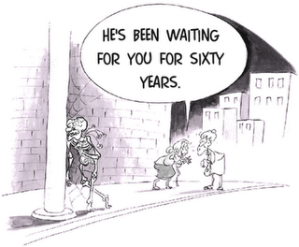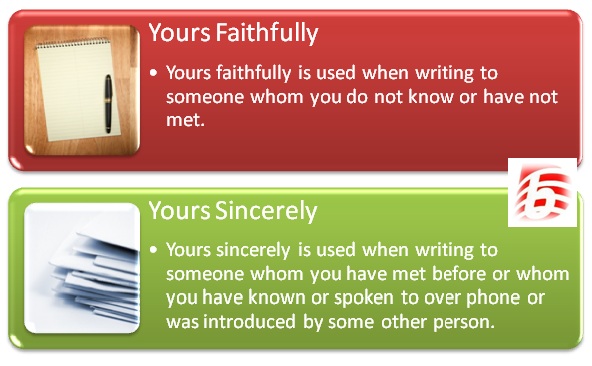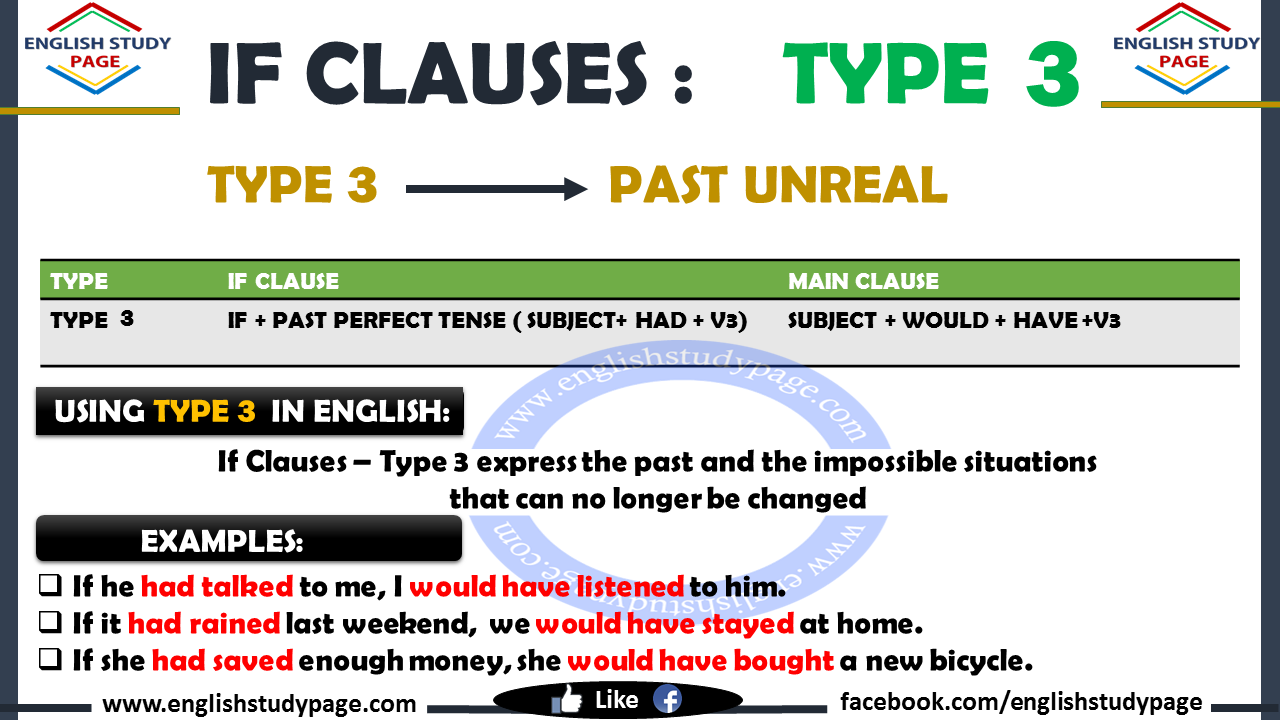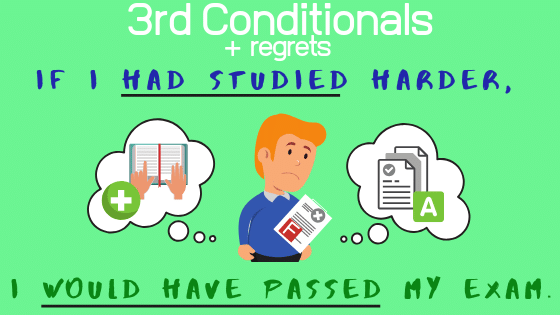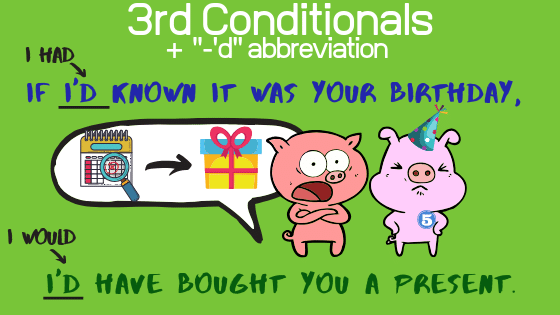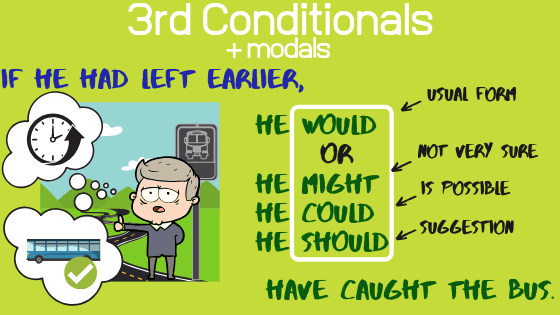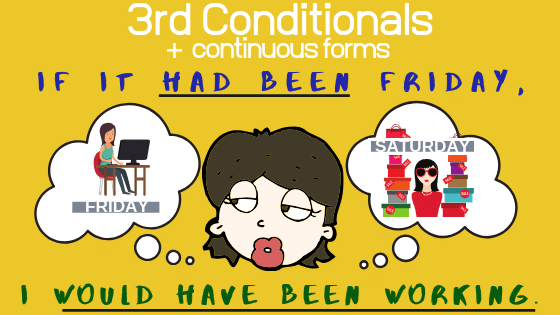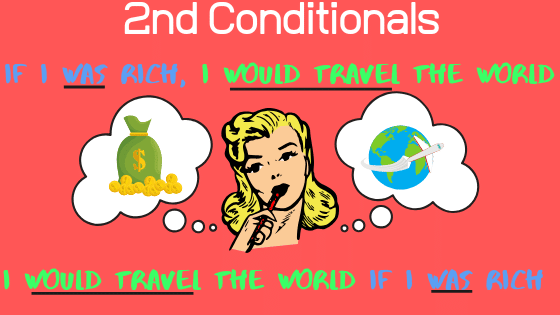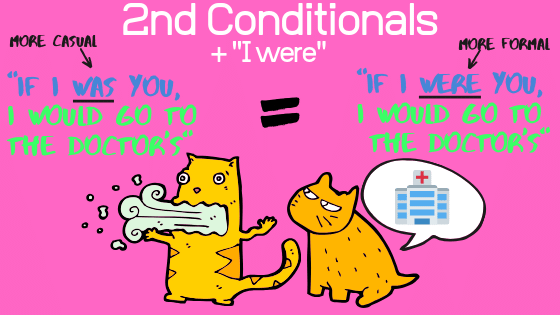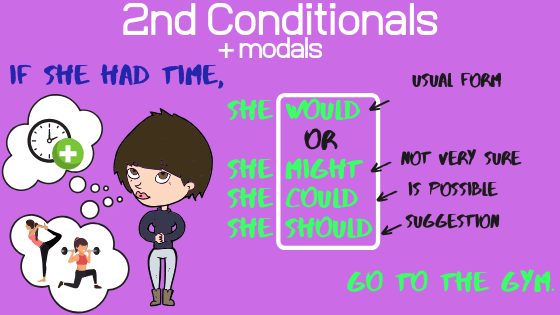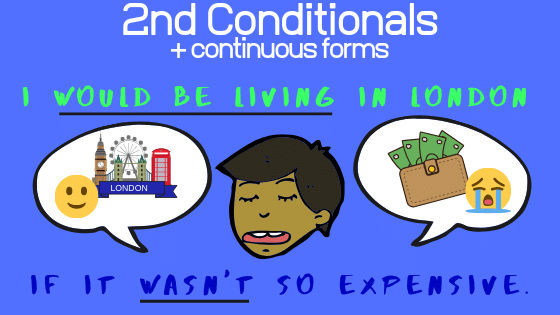Thursday 22 April 2021
How to write a semi-formal email
A semi-formal e-mail is written to someone that you know by name and with whom you have a professional or business relationship with, for instance; your teacher, accountant, landlord, etc. The surname should be used when addressing them – Dear Mrs.Thomas, Dear Mr Jones.
A semi-formal greeting > Dear Mr Hopkins, Dear Mrs Thomas.
When signing off the e-mail, ‘Yours truly’, ‘Sincerely yours’ and ‘Yours faithfully’ would be used for semi-formal or formal e-mails. In semi-formal e-mails, you can also use – ‘With best wishes’ and ‘With regards’.
Here is an example of a semi-formal e-mail structure.
Monday 19 April 2021
Friday 16 April 2021
Third Conditional: no possibility or past unreal
Condition | Result | |
Past Perfect | WOULD HAVE + Past Participle | |
If | I had won the lottery | I would have bought a car. |
IF | Condition | Result |
past perfect | WOULD HAVE + past participle | |
If | I had seen Mary | I would have told her. |
If | Tara had been free yesterday | I would have invited her. |
If | they had not passed their exam | their teacher would have been sad. |
If | it had rained yesterday | would you have stayed at home? |
If | it had rained yesterday | what would you have done? |
Result | IF | Condition |
WOULD HAVE + past participle | past perfect | |
I would have told Mary | if | I had seen her. |
I would have invited Tara | if | she had been free yesterday. |
Their teacher would have been sad | if | they had not passed their exam. |
Would you have stayed at home | if | it had rained yesterday? |
What would you have done | if | it had rained yesterday? |
Using the 3rd conditional
to express regrets
Note: Since
the 3rd conditional deals with situations that could have but didn’t
happen in the past, it is often used to talk about regrets or things we
wish had happened differently. For Example:
If I had studied harder, I would have passed my exam.
[condition] [result]
Here, the speaker could have studied harder and the result could have been passing his exam, but in reality, they didn’t study so much and they didn’t pass. It is too late for this condition to become true.
Using “- ‘d” for “would” and “had”
in the 3rd conditional
Note: In English, we often abbreviate words especially when speaking casually. Both the words “would” and “had” can be abbreviated to “- ‘d” ( apostrophe + “d” ). This can be confusing when it occurs in the 3rd conditional which uses both words in the same sentence. To help you decide which word “- ‘d” is referring to, remember that:
- “would” never appears with “if” in the condition part of the sentence. If you see “- ‘d” after “if” it must be the abbreviation of “had”.
- “Had” can never be before “have”. So if you see “- ‘d” before “have” then it must be the abbreviation of “would”.
For example:
(I had) (I would)
If I’d known it was your birthday, I’d have bought you a present.
[condition] [result]
Using other modals instead of “would” in the 3rd conditional
Note: It is possible to use other modals such as “could,” “might,” and “should” in
place of “would” in the 3rd conditional as well. Changing the modal
changes the degree of certainty, with “might” being not very sure,
“could” being about 50/50 and “should” being very sure. For example:
Using the continuous form in the 3rd conditional
Note: The continuous form can also be used in the 3rd conditional to talk about unfinished or continuous actions /states that would have resulted in the past, from possible past conditions that didn’t actually happen. The structure is the same in the condition part with “If” followed by the past perfect, while the result part takes “would” followed by the present perfect continuous form:
[If + past perfect tense] , + [would + have been verb-ing]
[condition] [result]
OR
[would + have been verb-ing] (no comma) + [If + past perfect tense]
[result] [condition]
For example:
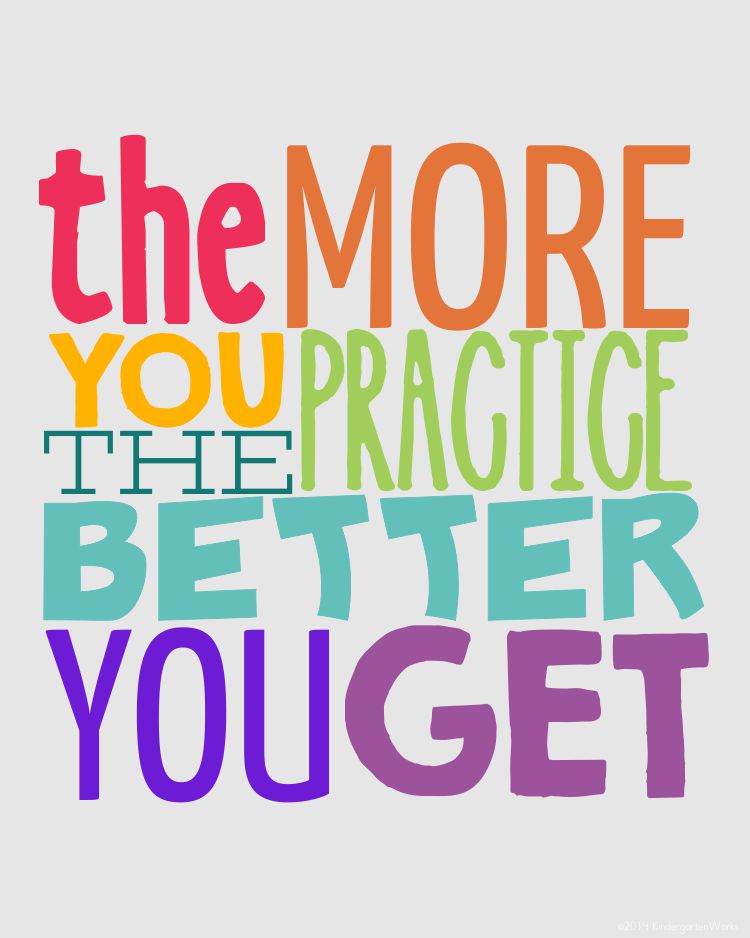
EXERCISE TWO
The 2nd conditional
[If + past tense] , + [would + bare infinitive]
[condition] [result]
OR
[would + bare infinitive] (no comma) + [if + past tense]
[result] [condition]
Just make sure you use the correct pronouns so that the subject of the sentence is still clear. For example:
If I was rich, I would travel the world.
[condition] [result]
OR
I would travel the world if I was rich.
[result] [condition]
Here, the meaning is that the person speaking isn’t rich now, and believes that becoming rich is possible but probbly not going to happen, it is an imagined / hypothetical situation.
Using “I were” instead of “I was”
in the 2nd conditional
Note: When “I” is the subject we often use “I were” in conditional sentences as opposed to “I was,” especially when writing, as it sounds more formal. For example:
If I was you, I would go to the doctor’s
[condition] [result]
OR
If I were you, I would go to the doctor’s.
[condition] [result]
Here, the meaning is that the person speaking isn’t rich now, and believes that becoming rich is possible but probably not going to happen, it is an imagined / hypothetical situation.
Using other modals instead of “would”
in the 2nd conditional
Note: It is also possible to use other modals such as “could,” “might,” and “should” in place of “would” in the 2nd conditional. Changing the modal changes the degree of certainty or the tone of the sentence, with “might” being not very sure, “could” being about 50/50 and “should” being used for making suggestions.
Using the continuous form
in 2nd conditionals
Note: It is also possible to use the continuous form to talk about unfinished or continuous actions / states that would result from the improbable/hypothetical conditions described by 2nd conditional sentences. The structure is the same in the condition part with “If” followed by the simple past, while the result part takes “would” followed by “be” and the verb in the continuous form:
[If + past tense] , + [would + be + verb-ing]
[condition] [result]
OR
[would + be + verb-ing] (no comma) + [If + past tense]
[result] [condition]
For example:
Here, the action of living in London would have started in the past and would still be continuing now if the condition was true, which, unfortunately, it isn’t, as living in the capital usually costs a lot of money.




